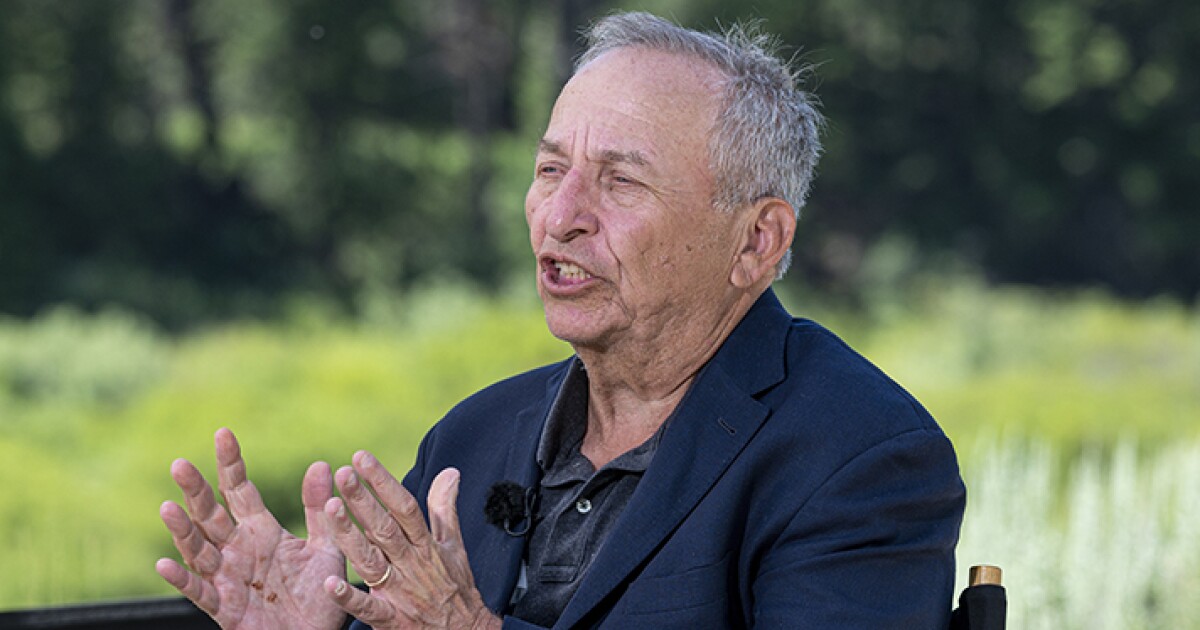
Former Treasury Secretary Lawrence Summers said he expects Donald Trump to name a mainstream candidate to replace Federal Reserve Chair Jerome Powell, despite the president's bashing of the U.S. central bank leader for failing to cut interest rates this year.
"I would be quite surprised if he did not make a choice that fair-minded observers on both sides recognized as a reasonable person," Summers said on Bloomberg Television. "I am considerably more confident than some" that Trump would make such a decision, thanks to the swift financial-market reactions to the news when it comes, he said.
Powell's term as chair is up in May 2026, and Trump said this month his pick would be "coming out very soon." In April, Treasury Secretary Scott Bessent had said the timeline for interviewing candidates to succeed Powell was "sometime in the fall." Bessent himself has emerged as a potential candidate on a list that includes former Fed board member Kevin Warsh, Bloomberg has reported.
Trump this week repeated his criticism of Powell and his colleagues for keeping benchmark rates unchanged, saying they should be at least 2 percentage points lower. During an event Wednesday, he also quipped, "Am I allowed to appoint myself at the Fed? I'd do a much better job than these people."
"My guess is that — influenced by the desire not to gratuitously destabilize markets, and influenced by the fact that there are still some sound voices among Republicans in the Senate — my bet would be that the president will make a respected person the next Fed chair," said Summers, a Harvard University professor and paid contributor to Bloomberg TV.
Summers also said that Trump's repeated calls for Fed rate reductions are likely more of an effort to shift blame for any economic downturn than they are an outright attempt to influence the central bank's policy.
"What he's doing is setting up a situation where, if we have a recession, he will be able to blame it on something other than his administration's policies," he said.
The former Treasury chief also highlighted the role of Trump's policies in the latest update of economic forecasts by Fed board members and district-bank presidents, released Wednesday alongside the decision to keep rates unchanged.
While energy costs have come down this year, and the application of artificial intelligence bodes for an improvement in productivity, the new Fed forecasts suggest a negative, not a positive, supply shock for the economy, Summers said.
"It doesn't happen that often that the Fed revises up on inflation and unemployment at the same time," he said. "So you see a supply shock coming," he said. "What is it? It's the tariffs. We're imposing a supply shock on ourselves, and that's leading to expectations of both higher inflation and higher unemployment — making the Fed's job that much more difficult."



